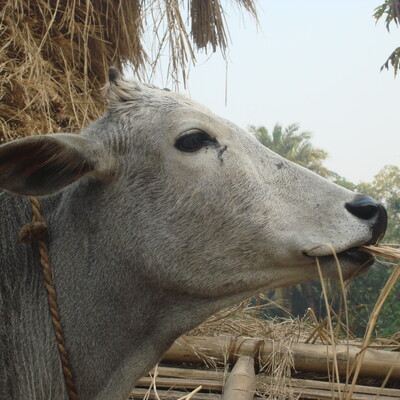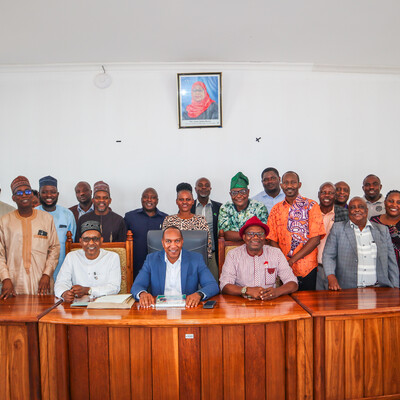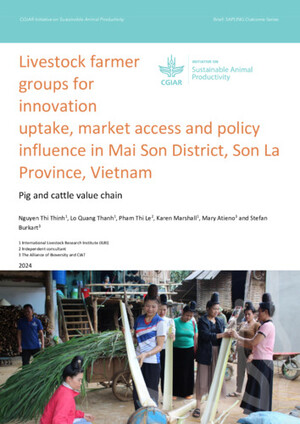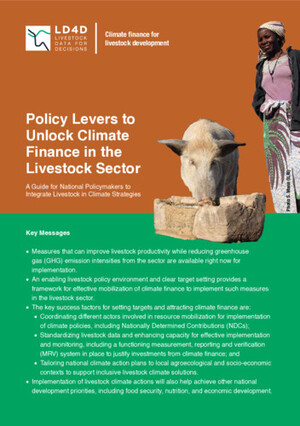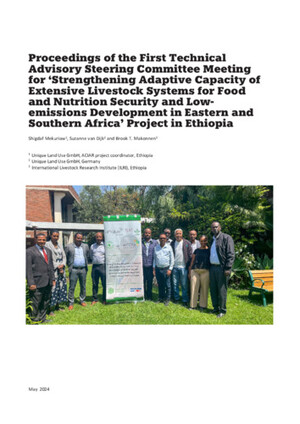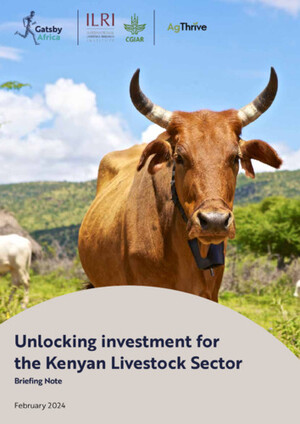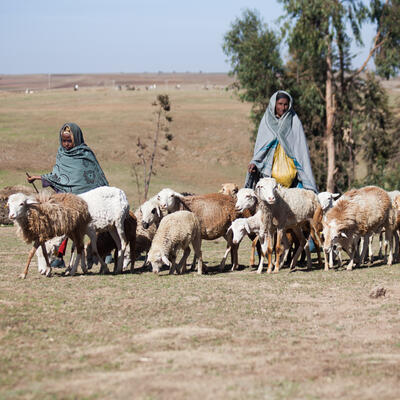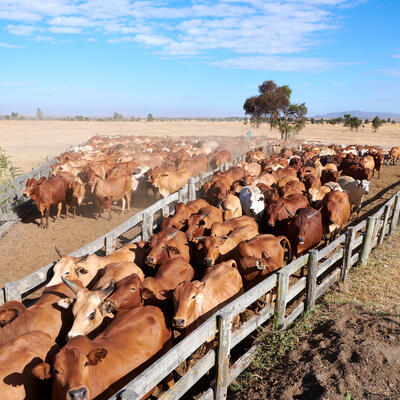
Renowned vaccinologist Peter Hotez on the COVID-19 pandemic—and how a new vaccine can help end it
With the global surge in COVID-19 cases driven by the Omicron variant finally subsiding, many are wondering what the next phase of the pandemic has in store. To help answer that question, ILRI invited Peter Hotez, a tropical medicine specialist who began his career as a scientist with ILRI’s predecessor ILRAD, to speak at ILRI’s weekly round-up on 11 March 2022. Hotez, who currently serves as a vaccinologist at the Baylor College of Medicine and co-director of the Center for Vaccine Development at Texas Children’s Hospital, spoke with ILRI scientist Eric Fèvre about the current state of the pandemic as well as the progress of his newly developed COVID-19 vaccine. In Kenya, hospital and ICU admissions have steadily declined after they spiked in December 2021.
Hotez confirmed that in many places around the world, ‘COVID-19 case numbers are going down precipitously’ which has generated optimism that perhaps we are nearing a return to pre-pandemic normalcy. Hotez shares in that optimism but also warned that the current reduction in cases does not signal the end of our fight against COVID-19. The potential for new outbreaks and variants remains a concern, so Hotez urged people ‘to have situational awareness and understand what is happening in your local area in terms of transmission’.
Hotez believes that vaccinating the global population is what will eventually allow a return to pre-pandemic life. To that end, Hotez and his colleagues have developed a new COVID-19 vaccine called CORBEVAX. The vaccine is unique among existing COVID-19 vaccines in that it is a protein sub-unit vaccine that relies on expressing parts of the SARS-CoV2 spike protein in yeast, a similar process to that used in the hepatitis B vaccine for the last 40 years. Given the widespread trust in the hepatitis B vaccine, CORBEVAX may be more appealing to those concerned by new mRNA technologies. Other advantages include CORBEVAX’s scalability, low cost and easy storage.
Perhaps the most significant aspect of the CORBEVAX vaccine is its lack of a patent.
In a move reminiscent of Jonas Salk, who invented the polio vaccine and famously refused to claim a patent for it (‘It would be like claiming a patent for the sun', he famously declared), Hotez explained that the lack of a patent will allow the vaccine to be produced by local manufacturers across the developing world, unlike the Pfizer and Moderna vaccines. Indeed, 300 million doses of CORBEVAX have already been produced in India where it received emergency use authorization, and Hotez is currently in talks with other vaccine producers across the developing world. In addition to local production, Hotez hopes that vaccine distributors will soon share the vaccine with COVAX, a worldwide initiative aimed at equitable access to COVID-19 vaccines, so that it can be distributed across Africa where vaccination rates lag far behind the rest of the world.
Unequal access to COVID-19 vaccines has unfortunately been a defining feature of the world’s pandemic response. ‘The big message from this COVID pandemic is that we’ve had such horrific vaccine inequalities by design. All the funding support went to the multinational pharmaceutical companies who are primarily focused on the Northern Hemisphere’, said Hotez.
This will have to change moving forward. Instead of relying on multinational companies, we should be ‘empowering vaccine producers, especially on the African continent’, said Hotez. This will help Africa become self-sufficient in vaccine production—an important step towards overcoming COVID-19 and more regional pandemics like Rift Valley Fever and Malaria. There is hope, too, that the technology for corbevax can be adapted for other diseases—particularly those afflicting countries and regions in the poor world.
There are signs that Africa is moving in the right direction. The Government of Botswana recently partnered with a producer of Hotez’s vaccine to build vaccine infrastructure at the edge of the Kalahari Desert. These new facilities could help produce CORBEVAX and distribute it across the African continent. Moving forward, efforts like these will be vital in ending the COVID-19 pandemic and preparing Africa for pandemics of the future.
Hear the full interview here:
Hotez also spoke to ILRI on the harsh global inequalities in the vaccine rollout of COVID-19 in March 2021.
Photo: Staff prepare a vaccination solution at the Ethiopian Institute for Agricultural Research at the Debre Zeit Agricultural Research Centre in April 2016. (photo credit: Hannah Rollings).






